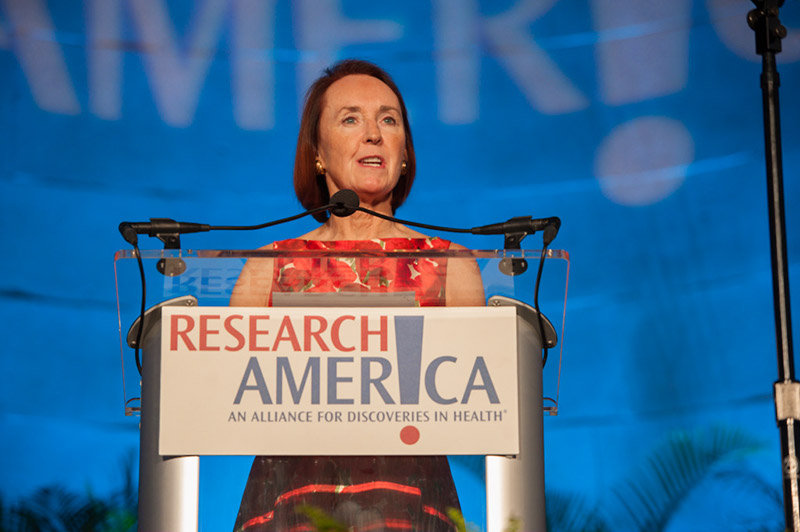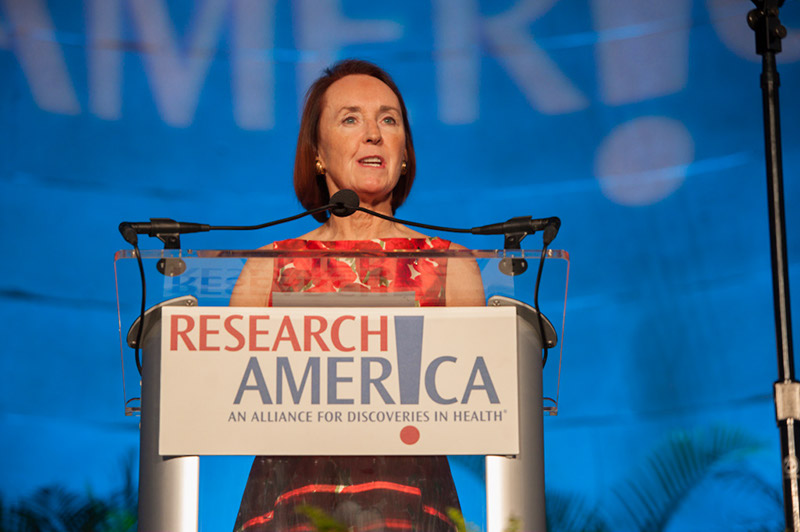Solving Problems to Benefit Us All


Dear Research Advocate,
This week we congratulate the winners of the Nobel prizes, celebrating achievements and solving problems that benefit us all. In our statement, we underscore the importance of federal taxpayer funding for basic research, making the extraordinary work of the Laureates possible.
I’ve long admired the way the Nobel Foundation captures the essence of the Laureates’ contributions, exemplifying as they do the very best in persuasive writing. (For those like me who are aficionados of the power of the written word, this linked blog post provides keen insights on the rhetorical reasons why the Nobel Foundation is – and all of us can become – a model of writing that wins hearts as well as minds for science!)
What does the public have to say about science? A recent survey commissioned by Research!America on behalf of a working group formed to assess America’s commitment to science reveals that Americans – across party lines – now consider that the challenges facing our nation are urgently in need of response. Science is viewed as critically important to solving problems that can’t wait. The survey reveals a public mandate for action.
In the survey, overwhelming majorities say science benefits them personally, want America to maintain its global leadership in science, and agree the U.S. is at a critical point for committing to a major new initiative to assure health, security, and prosperity for the nation. We note an area of concern, however, with adults aged 18-29 appearing to see science as less consequential to our nation’s future. Please review the release and survey results here.
Vote Science Strong: In the remaining weeks before Election Day, please take time to share this survey data with candidates and urge them to commit to supporting a science strong future for our nation; it’s what voters want and expect them to do! The nonpartisan Vote Science Strong site makes it easy to reach out to candidates through “tele-townhalls” and via social media. If you are a California voter or have a presence there, consider including the importance of the passage of Proposition 14 in your advocacy. The important ballot measure would authorize $5.5 billion for continued funding for medical research that will find the solutions to what ails us.
On Capitol Hill: Lawmakers are on the campaign trail, with the Senate scheduled to come back into session before Election Day. House Speaker Nancy Pelosi (D-CA) and Treasury Secretary Steven Mnuchin are continuing to speak in a bid to reach agreement on an emergency supplemental spending bill; there is a new read on this every day. Advocacy can’t stop! You can reach out, using survey data provided above, to encourage your representatives in Congress to voice their support for an agreement that includes at least $26 billion to supplement pandemic-eroded research funding. Back up your email with a direct tweet. Help make the case!
Advocacy in Action: In late September, the Department of Homeland Security (DHS) issued a Proposed Rule aimed at restricting visas for international students. The rule would place an expiration date on visas that had previously lasted the duration of a student’s degree program. This will hamper research and create needless paperwork and uncertainty for institutions, scientists, and students. Consider offering comments; the deadline is October 26, 2020.
New Microgrant Opportunities: Are you a PhD or postdoc interested in applying your skills as a scientist to the needs of your local community or state? Or do you work with such students? Supported by a grant from the Rita Allen Foundation, we are excited to announce the third year of microgrants for PhD and postdocs to fund new ideas and fresh perspectives that create opportunities for dialogue with local community leaders, government officials, and the public. Please spread the word by sharing this link. The application deadline is November 9, 2020.
Awareness and Advocacy Working Together: October is Breast Cancer Awareness Month. Breast cancer research – along with routine screening – has helped to decrease the disease’s death rate in the U.S. by 40% between 1989 and 2016. Research matters; research works. Our fact sheet on breast cancer with more details about the progress research has meant for patients is one of over 60 in our fact sheet library, sponsored by the Lasker Foundation. Please download and share.
Alliance Member Updates: Next Thursday, October 15, 2020, at 2:30 p.m. ET, please join our alliance member meeting on ClinicalTrials.gov’s modernization effort with guests Drs. Rebecca Williams, Acting Director and Anna Fine, Deputy Director of ClinicalTrials.gov at the National Library of Medicine (NLM). Please register before the meeting to ensure your spot. If you have questions you would like addressed, please email them to [email protected].
Stay well, stay safe, and stay connected.
Sincerely,
Mary Woolley




